Keynote Speakers
National Institute of Health

Roderic Pettigrew, Ph.D, M.D., is the first Director of the National Institute of Biomedical Imaging and Bioengineering (NIBIB) at the NIH. From 2013-2014, the NIH Director appointed Dr. Pettigrew as the Acting Chief Officer for Scientific Workforce Diversity to establish program oversight of all NIH activities that address the unique diversity and inclusion challenges, to strengthen the national biomedical research workforce. Prior to his appointment at the NIH, Dr. Pettigrew was Professor of Radiology, Medicine (Cardiology) at Emory University in Atlanta, Georgia, Professor of Bioengineering at the Georgia Institute of Technology, and Director of the Emory Center for MR Research at the Emory University School of Medicine. He is known internationally for his pioneering work at Emory University involving four-dimensional imaging of the cardiovascular system using magnetic resonance (MRI). His current research focuses on integrated imaging and predictive biomechanical modeling of coronary atherosclerotic disease. Early on at the NIBIB he jointly led a national effort with Howard Hughes Medical Institute to create new interdisciplinary graduate training programs, and established the Quantum Projects program to achieve “medical moon shots” by pursuing high-risk, high-impact projects designed to solve major healthcare problems. Under Dr. Pettigrew’s leadership, national collaborative and international initiatives have been issued to develop low cost and point-of-care medical technologies and at present, he leads an effort to reduce CT radiation dose to background levels. He also leads a recent US-India collaboration to develop unobtrusive technologies for frequent recording of blood pressure to address the worldwide problem of hypertension. Dr. Pettigrew has been elected to membership in two components of the US National Academies: the Institute of Medicine, and the National Academy of Engineering. His awards include Phi Beta Kappa, the Bennie Award for Achievement, Morehouse College, the Most Distinguished Alumnus of the University of Miami (1990), the Hall of Fame of the Miller School of Medicine at the Universityof Miami, the Herbert Nickens Award of the ABC, the Pritzker Distinguished Achievement Award of the Biomedical Engineering Society, the Distinguished Service Award of the National Medical Association, the Pierre Galletti Award of the American Institute of Medical and Biological Engineering, and the Inaugural Gold Medal Award of the Academy of Radiology Research. He has also been awarded Honorary Professor of the South China University of Technology in Guangzhou on the occasion of commencing their first medical school class.
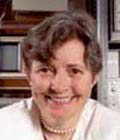
Carol Lucas, Ph.D. is currently a NSF Program Director/Visiting Scientist for the Biomedical Engineering and Research to Aid Persons with Disabilities Cluster within the Bioengineering and Environmental Systems Division, Engineering Directorate. She is an Emeritus Professor of Biomedical Engineering, Surgery, and Applied Sciences at the University of North Carolina at Chapel Hill, where she chaired the Biomedical Engineering program from 1989-2001.
Dr. Lucas earned a Bachelor of Arts Degree in Mathematics from Dakota Wesleyan University, Mitchell, South Dakota, and a Master of Science Degree in Mathematics from the University of Arizona, Tucson, Arizona, before obtaining a Ph.D. degree in Biomedical Engineering and Mathematics from the University of North Carolina. Her research interests have been associated with understanding right-sided hemodynamics in children with congenital heart defects, with a current focus on those children who are candidates for Fontan operations. Teaching interests included math modeling (finite element analysis, computational cell biology, hemodynamics, etc.), digital signal processing and control theory.
Engineering & Applied Sciences
Harvard University
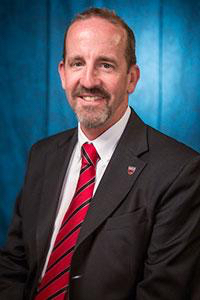
Frank Doyle assumed the deanship of the Harvard John A. Paulson School of Engineering and Applied Sciences on July 1, 2015. A distinguished scholar in chemical engineering, he previously served as associate dean for research at the University of California, Santa Barbara’s College of Engineering, where he has served as chair of the department of chemical engineering. As a scholar, Doyle applies systems engineering principles to the analysis of regulatory mechanisms in biological systems. His work includes the design of drug-delivery devices for diabetes; modeling, analysis, and control of gene regulatory networks underlying circadian rhythms; and computational analysis for developing diagnostics for post-traumatic stress disorder. Doyle also applies control schemes to nonlinear, multivariable, constrained industrial processes such as particulate systems and pulp and paper operations, and works on control aspects of sheet/film processes.
Johns Hopkins School of Medicine
Director, Institute for Computational Medicine
Director, Center for Cardiovascular Bioinformatics and Modeling
Whiting School of Engineering, Johns Hopkins
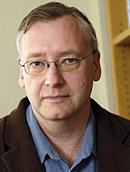
Prof. Raimond Winslow, Ph.D. holds a B.S. in electrical engineering from Worcester Polytechnic Institute and a PhD in biomedical engineering from the Johns Hopkins University. He concluded his training at the Institute for Biomedical Computing and Department of Neurology within Washington University in St. Louis. He joined the faculty of Johns Hopkins in 1991 as an assistant professor, became an associate professor in 1994 and a full professor in 2000. Dr. Winslow is a fellow of the Biomedical Engineering Society, American Heart Association and American Institute for Medical and Biological Engineering. He serves as Specialty Editor in Chief for the journal Frontiers in Computational Physiology and Medicine, and as a member of the editorial boards of Circulation Research, The Journal of Molecular and Cellular Cardiology, IET Systems Biology and the International Journal of Computational Medicine and Healthcare. He has authored or co-authored over 130 peer-reviewed articles and 12 book chapters, received numerous grants and awards and holds one patent. He holds a secondary appointment in Electrical and Computer Engineering.
Director, Center for Magnetic Resonance Research (CMRR)
University of Minnesota
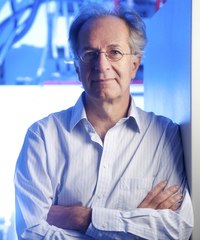
Prof. Kamil Ugurbil was educated at Robert Academy, Istanbul (high school) and Columbia University, New York, N.Y. After completing his B.A. and Ph.D. degrees in physics, and chemical physics, respectively, at Columbia, he joined AT&T Bell Laboratories in 1977, and subsequently returned to Columbia as a faculty member in 1979. He was recruited to the University of Minnesota in 1982 where his research in magnetic resonance led to the evolution of his laboratory into an interdepartmental and interdisciplinary research center, the CMRR. The work that introduced magnetic resonance imaging of neuronal activity in the human brain (known as fMRI) was accomplished independently and simultaneously in two laboratories, one of which was Ugurbil's in CMRR. Since then, his primary focus has been the development and application of methods capable of obtaining high resolution and high accuracy functional and anatomical information in the human brain, targeting spatial scales ranging from the whole brain to elementary neuronal ensembles exemplified by cortical columns and layers. This body of work has culminated in unique accomplishments, such as the first time imaging of orientation columns in the human primary visual cortex, and involved the development of numerous new instruments and image acquisition approaches, including the introduction and development of ultrahigh magnetic fields (7 Tesla and higher) for functional and anatomical imaging.
Director, Laboratory for Intelligent Imaging and Neural Computing (LIINC)
Columbia University

Prof. Paul Sajda, Ph.D. received his B.S. in Electrical Engineering from MIT (1989) and his M.S. and Ph.D. in Bioengineering from the University of Pennsylvania (1992, 1994). In 1994 he joined the David Sarnoff Research Center where he went on to become the Head of the Adaptive Image and Signal Processing Group. He is currently a Professor in the Departments of Biomedical Engineering, Electrical Engineering and Radiology at Columbia University where he is Director of the Laboratory for Intelligent Imaging and Neural Computing (LIINC). His research focuses on neural engineering, neuroimaging, computational neural modeling and machine learning applied to image understanding.
Department of Physical Medicine and Rehabilitation
Harvard Medical School
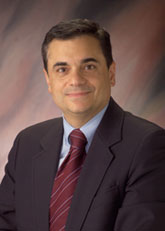
Ross Zafonte, D.O., serves as chief of Physical Medicine and Rehabilitation at Massachusetts General Hospital, Brigham and Women’s Hospital, as well as Senior Vice President Medical Affairs Research and Education at Spaulding Rehabilitation Network. Dr. Zafonte’s textbook is considered one of the standards in the field of brain injury care. Dr. Zafonte’s work is presently funded by the NIH, DOD and NIDRR, and he is currently directing several large clinical treatment trials. His laboratory work has focused on understanding mechanisms of recovery after Brain and Spinal Cord Injury. Dr. Zafonte also serves on the Board of Governors for the American Congress of Rehabilitation Medicine. He has published extensively on traumatic brain injuries, spasticity, and other neurological disorders, as well as presented on these topics at conferences nationally and internationally. He is the author of more than 300 peer review journal articles, abstracts and book chapters. In addition, he is on the editorial board of the Journal of Neurotrauma, and NeuroEngineering and Rehabilitation. He previously served on the founding editorial board of PMR. In 2006, Dr. Zafonte was selected to receive the Walter Zeiter award and lectureship by the American Academy of Physical Medicine and Rehabilitation, and, in 2008, he was the recipient of the Association of Academic Physiatrists Distinguished Academician Award. In 2012, Dr. Zafonte received the William Caveness award for outstanding clinical care and research from the Brain Injury Association of America, and, in 2013, he received the Joel DeLisa Prize from the Kessler Foundation. In 2014 Dr Zafonte will receive the Moody prize for Brain Injury research and care.
Department of Biological Engineering and Institute for Medical Engineering & Science
Massachusetts Institute of Technology
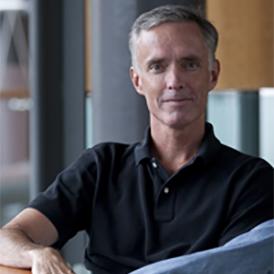
Prof. James Collins works in synthetic biology and systems biology, with a particular focus on using network biology approaches to study antibiotic action, bacterial defense mechanisms, and the emergence of resistance. Professor Collins' patented technologies have been licensed by over 25 biotech, pharma and medical devices companies, and he has helped to launched a number of companies, including Sample6 Technologies, Synlogic and EnBiotix. He has received numerous awards and honors, including a Rhodes Scholarship, a MacArthur "Genius" Award, an NIH Director's Pioneer Award, a Sanofi-Institut Pasteur Award, as well as several teaching awards. Professor Collins is an elected member of the National Academy of Sciences, the National Academy of Engineering, the Institute of Medicine, and the American Academy of Arts & Sciences, and a charter fellow of the National Academy of Inventors. The Collins research group works in synthetic biology and systems biology, with a particular focus on using network biology approaches to study antibiotic action, bacterial defense mechanisms, and the emergence of resistance. Prof. Collins is also affiliated with the Broad Institute and the Wyss Institute.
Department of Bioengineering
Group Leader, Laboratory of Integrated Bio Medical Micro/Nanotechnology & Applications
University of Illinois
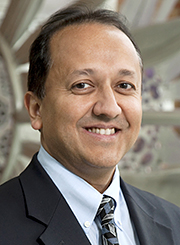
Rashid Bashir , Ph.D, completed his BSEE from Texas Tech University as the highest ranking graduate in the College of Engineering in Dec 1987. He completed his MSEE from Purdue University in 1989 and Ph.D. from Purdue University in 1992. From Oct 1992 to Oct 1998, he worked at National Semiconductor in the Analog/Mixed Signal Process Technology Development Group where he was promoted to Sr. Engineering Manager. He joined Purdue University in Oct 1998 as Assistant Professor and was later promoted to Professor of Electrical and Computer Engineering and a Courtesy Professor of Biomedical Engineering and Mechanical Engineering. Since Oct 2007, he was the Abel Bliss Professor of Electrical and Computer Engineering & Bioengineering, Director of the Micro and NanoTechnology Laboratory (a campus wide clean room facility) at the University of Illinois, Urbana-Champaign, and Director of the campus-side Center for Nanoscale Science and Technology, a collaboratory aimed to facilitate center grants and large initiatives around campus in the area of nanotechnology. Since Oct. 2013 he has been the Department Head of Bioengineering. He has authored or co-authored over 190 journal papers, over 200 conference papers and conference abstracts, over 120 invited talks, and has been granted 37 patents. He is a fellow of IEEE, AIMBE, AAAS, AIMBE, and APS. His research interests include BioMEMS, Lab on a chip, nano-biotechnology, interfacing biology and engineering from molecular to tissue scale, and applications of semiconductor fabrication to biomedical engineering, all applied to solve biomedical problems. He has been involved in 2 startups that have licensed his technologies.
In addition to his own research group, he is the PI on an NSF IGERT on Cellular and Molecular Mechanics and Bionanotechnology and PI on an NIH Training Grant on Cancer Nanotechnology. He is also a project lead on an NSF Science and Technology Center on Emergent Behavior of Integrated Biological Systems (head quartered at MIT, and partners at GT and UIUC).